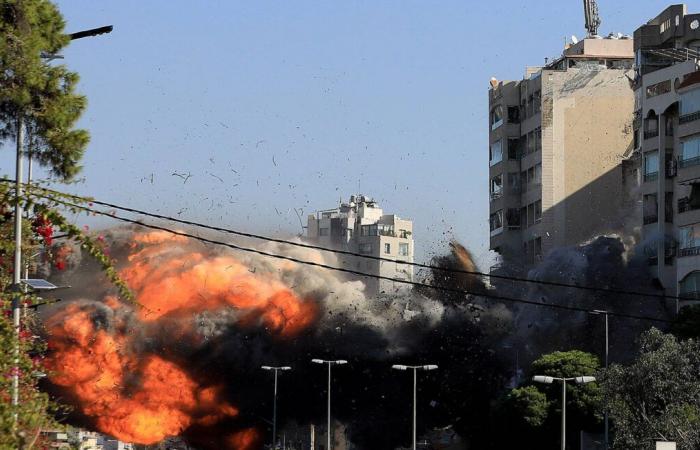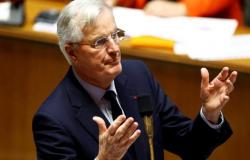The Lebanese will catch their breath. If the bombs continued to rain with increased intensity on Beirut in recent days, a truce between Israel and Hezbollah was made official on Tuesday evening, as announced by Benyamin Netanyahu, after the express approval by his cabinet of “a cease -the fire in Lebanon, the duration of which will depend on what happens. […] If Hezbollah violates the agreement and tries to rearm, we will attack. »
It must be said that the proposal to pause hostilities, tabled by the United States, jointly with France, and which theoretically provides for a cessation of fighting for 60 days, comes at the right time for a number of regional actors entangled in a conflict, which began on October 8, 2023. Good news, except perhaps for the Palestinian population.
How can Israel and its allies benefit from the ceasefire?
After more than a year of exchanges of fire and two months of ground fighting in Lebanon, the Israeli army is exhausted. Especially since it has also been mobilized in the Gaza Strip since the end of October 2023, a date which marked the start of the commitment of some 350,000 reservists who responded to the call to put on the boots of military and lend a hand to the soldiers. “This truce could allow mobilized Israeli citizens to breathe a little, while waiting for new actions to come,” judges Pierre Razoux, academic director of the Mediterranean Foundation for Strategic Studies (FEMS) and author of IDF: New history of the Israeli army (Perrin). Losses begin to weigh on the front. In a report published at the beginning of November, relayed by The Orient by dayHezbollah claimed to have killed more than 90 Israeli soldiers and injured more than 900 since the end of September.
This truce would also allow Washington to show that the United States still has a certain diplomatic influence over the Jewish state. For the 47th elected American president, it is a publicity stunt for his return to power in January. “He shows that he is capable of exerting real pressure on Benjamin Netanyahu and his government, even if the truce will not resolve the strategic situation in the region,” explains Pierre Razoux.
A boon for Iran and Hezbollah
The idea of a ceasefire with Israel had been in Hezbollah's pipeline for several months, according to Hugh Lovatt, senior fellow at the Middle East and North Africa program of the European Council on Foreign Relations (ECFR). And with the elimination of its leader Hassan Nasrallah in September as well as many strategic leaders, the group is weakened.
Armed arm of Iran, it can no longer be brandished as a serious threat against Israel and needs time to rebuild itself. This is why Iran also sees in this ceasefire an opportunity to step back to better gain power, even if Netanyahu affirmed that this truce would allow him to “focus on the Iranian threat”. The Islamist Republic never wanted to enter into a frontal war with Israel and this ceasefire is a good pretext to avoid responding to the latest attack on its soil,
Especially since “Iranian leaders have entered into a logic of dialogue with the Americans and Europeans on the nuclear program and regional balances,” notes Pierre Razoux. This pause in hostilities could allow him to take a deep breath and move forward diplomatically.
Heading for the Gaza Strip
A truce that suits everyone, or almost. In the region, “the Gazans will lose an important lever to negotiate a ceasefire in the Palestinian enclave,” underlines Hugh Lovatt. If the United States, the Europeans, and even Qatar have long worked in favor of a truce in the Gaza Strip with Israel fearing a regional escalation, if this fear disappears, “there will be no more pressure on the Jewish State in this sense,” adds the researcher.
Our file on the conflict in the Middle East
The population of the territory is also losing significant support. Because if Hezbollah will continue to display its defense of the Palestinian population on the surface, by accepting the truce, in practice it accepts the separation of the two theaters of conflict and the fact that the war in Gaza will continue more than ever. Benyamin Netanyahu has not hidden his intentions: “When Hezbollah is out of the game, Hamas finds itself alone. Our pressure will intensify, and this will contribute to the sacred mission of freeing our hostages.”
The Israeli army will be able to begin its security shift in the territory “by attempting to fracture Gaza, create buffer zones, corridors and thus better control the territory”, adds Hugh Lovatt, convinced that Israel “plans to occupy the strip of Gaza.” The researcher thus fears that Benjamin Netanyahu will respond to the ambitions of his most extreme ministers in exchange for their support for the ceasefire, namely to further develop Israeli settlements in the West Bank and bring settlers back to Gaza.






